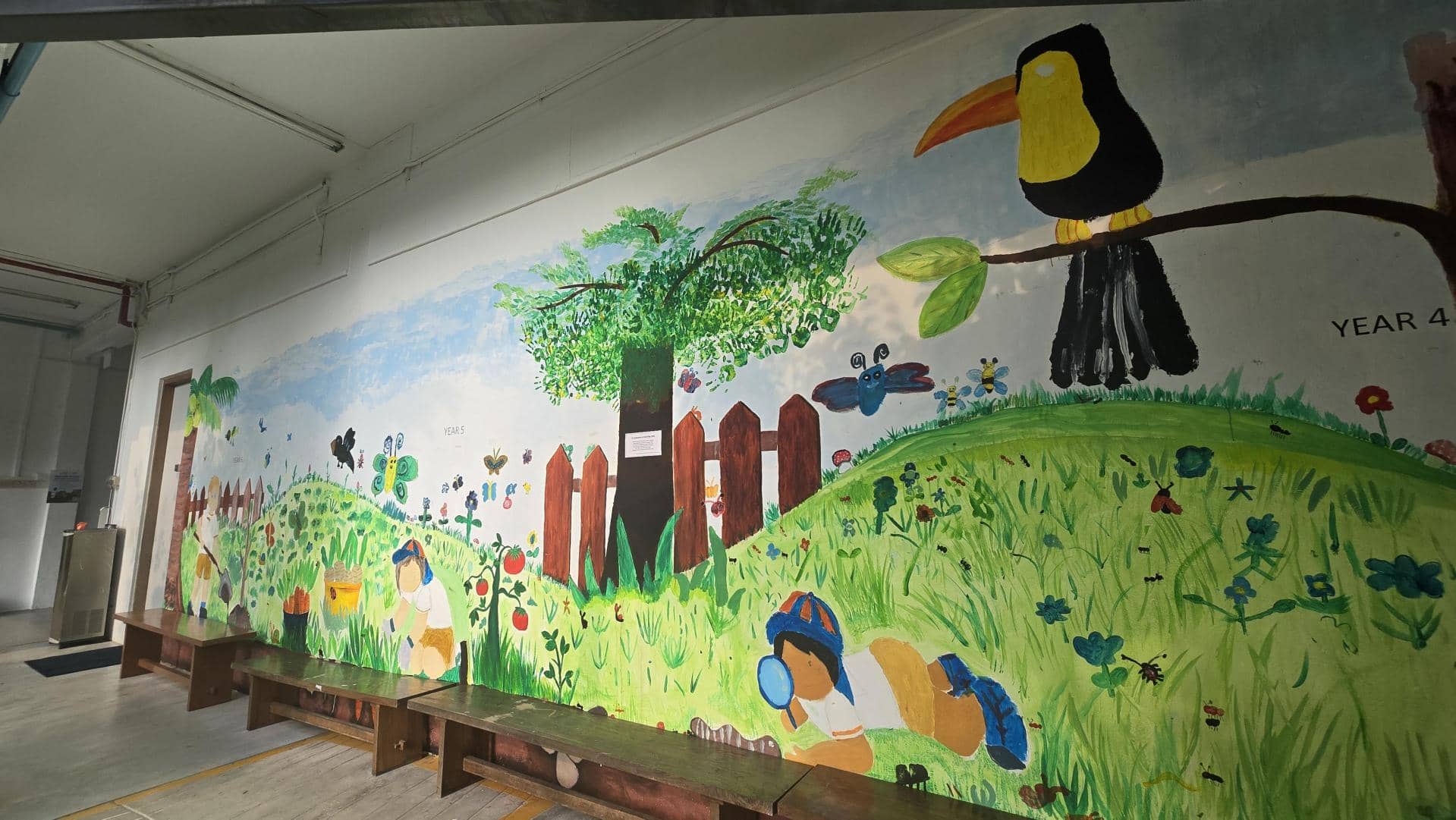The Grange Institution (TGI) is setting up an experimental Regenerative Farm in the school compound to help its student engage in a new conservation and rehabilitation approach to cultivating organic vegetables and fruit.
By going beyond sustainability, the project will also help address the challenges of climate change by reducing carbon drawdown and improving the water cycle.
It is a part of the TGI’s “Respecting the Environment and Active Citizenship” aspiration under its Cre8tors-in-Action educational philosophy. It helps our students to think deeper and explore new, revolutionary ideas.
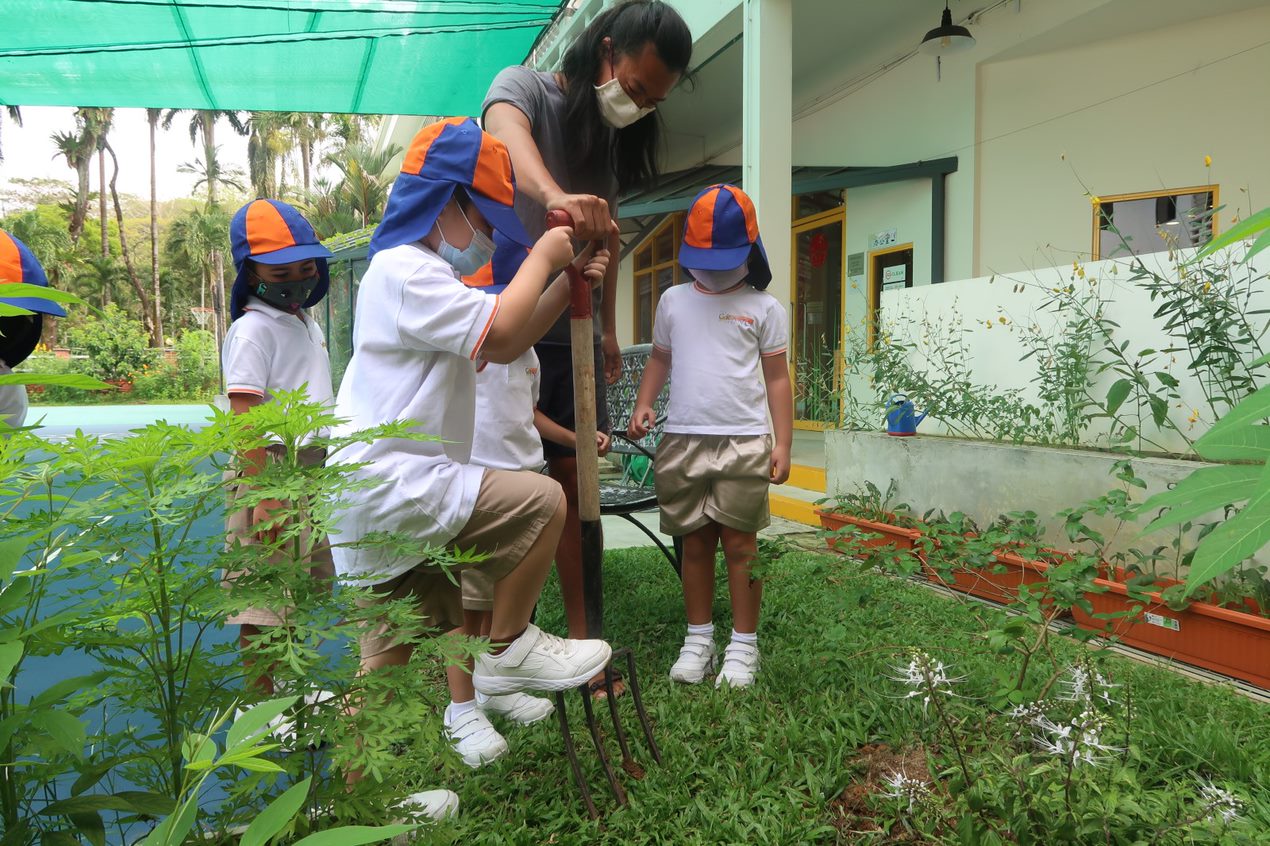
The Grange has hired a professional farmer to grow suitable greens in support of our Garden-to-Table project where students get to taste fresh and organic vegetables, fruits and edible flowers for snacks during their breaks.
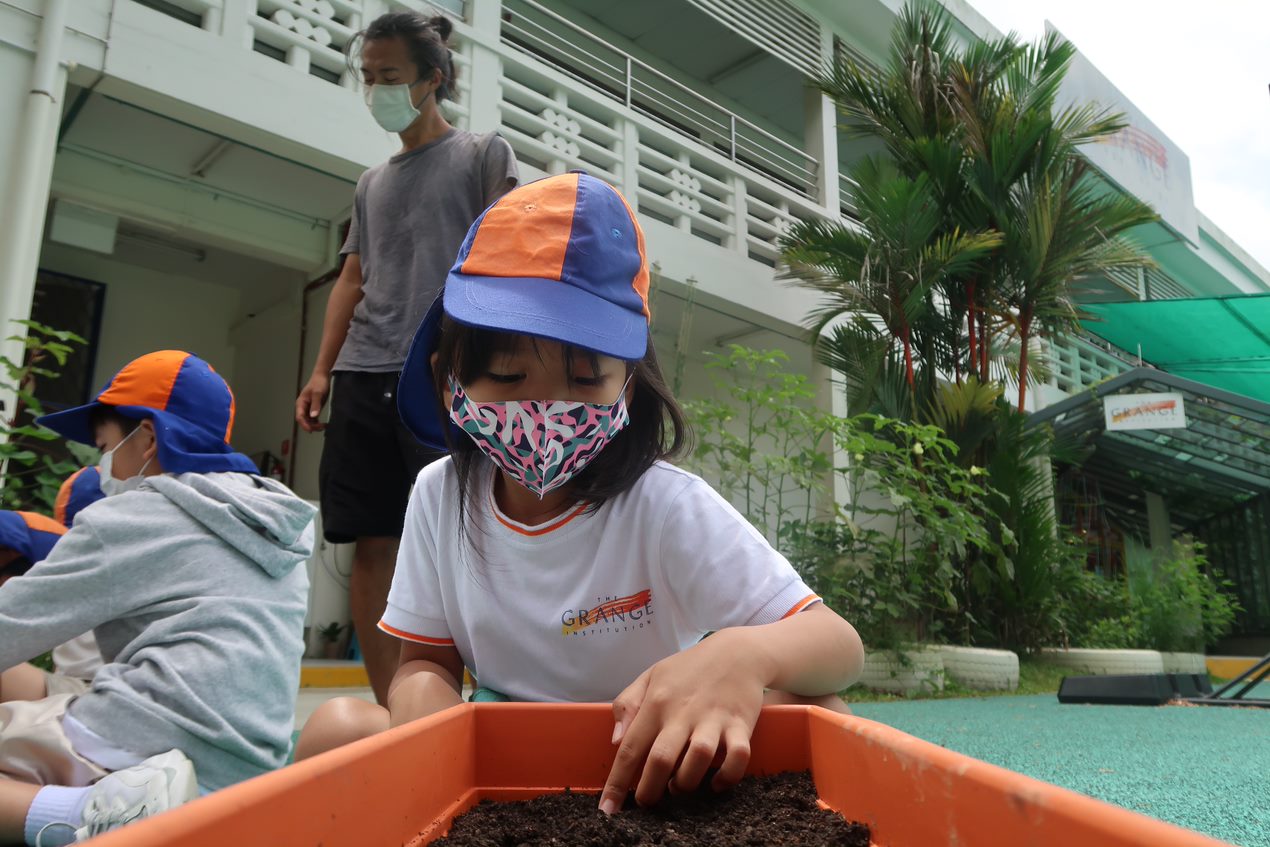
The farm is also part of TGI’s overall multi-prong “Green Granger” initiative to help students develop a genuine love for plants and to experiment with planting even at home.
“Our Eco-Garden will feature a specially curated “food forest” to mimic the structure of a natural forest to support students’ Science learning about plants and faunas in the tropical region,” said Eugene Low, Principal.
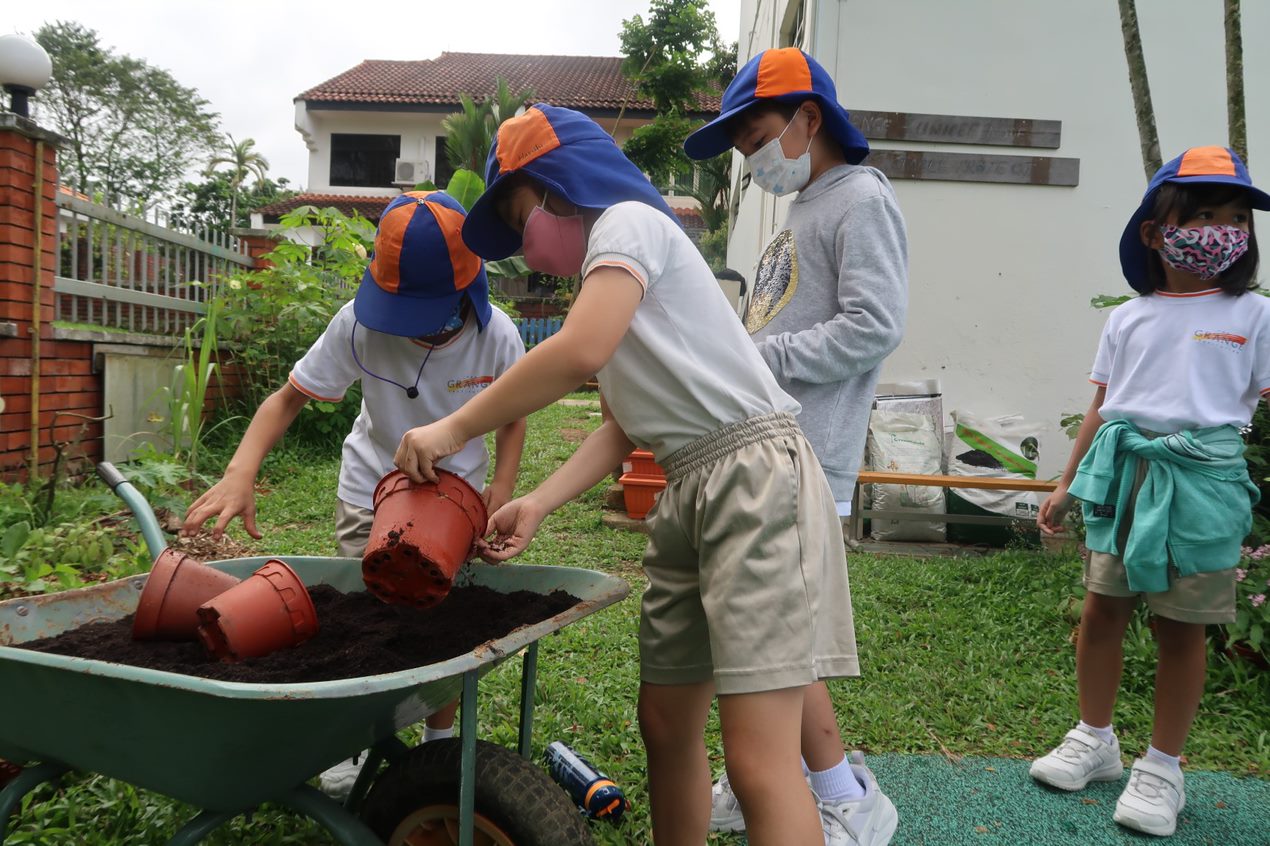
Sustainable farming has attracted much media attention in recent years and, in Singapore, many such farms have been set up with government support in response to the nation’s aim to produce 30% of its nutritional needs by 2030.
With more urban farms springing up in land-scarce Singapore, Regenerative Farming offers an excellent solution especially for small-plot and rooftop farming. It is a holistic approach incorporating permaculture and organic farming practices, with emphasis on topsoil regeneration and biodiversity, resulting in increasing soil health.
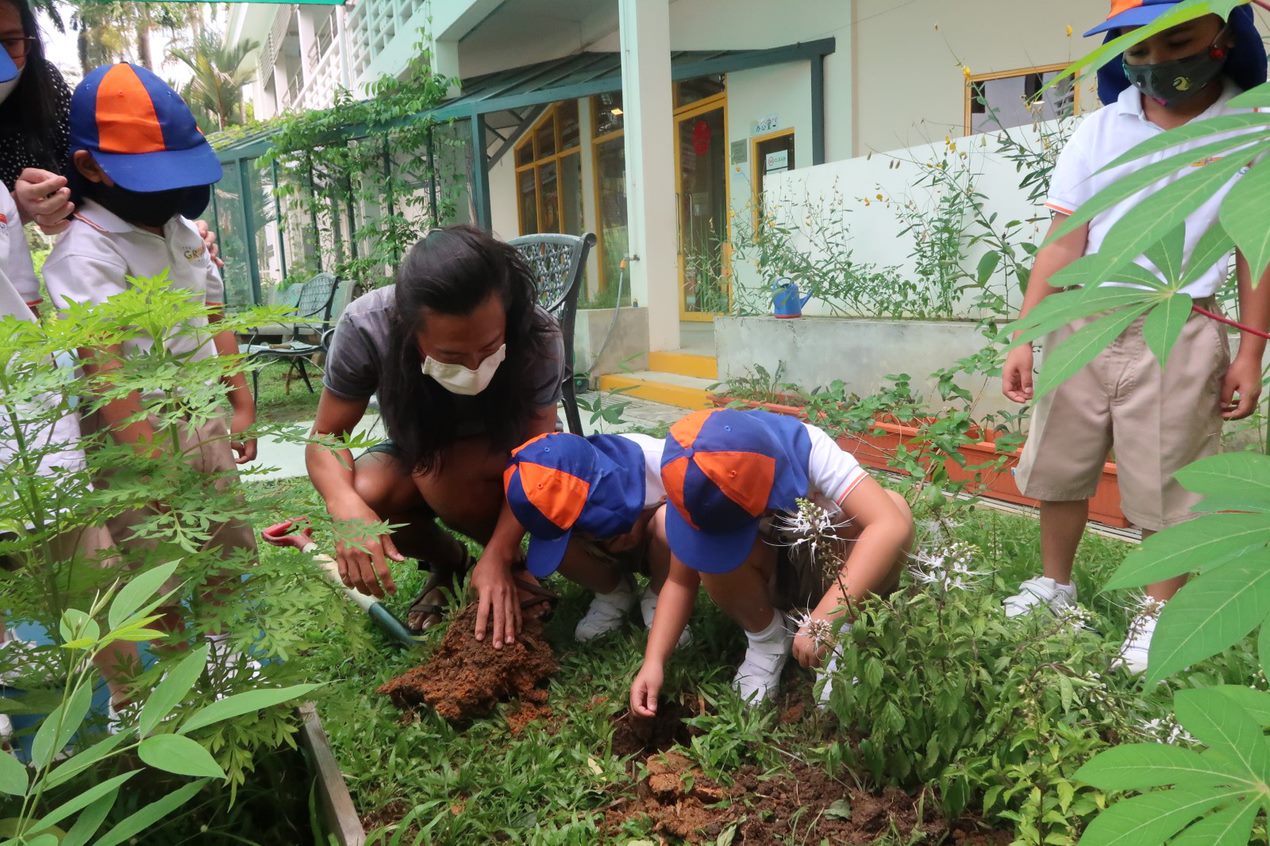
Efficient land use helps to naturally sequester a critical mass of CO2 in the soil offering another solution to global warming. This system of farming also reduces input requirements and increase crop yields, while the soil becomes more resilient against extreme weather and attract fewer pests and pathogens.
Meanwhile, The Grange continues to ‘greenify’ the school by increasing the amount of foliage its compound, including indoor spaces.





